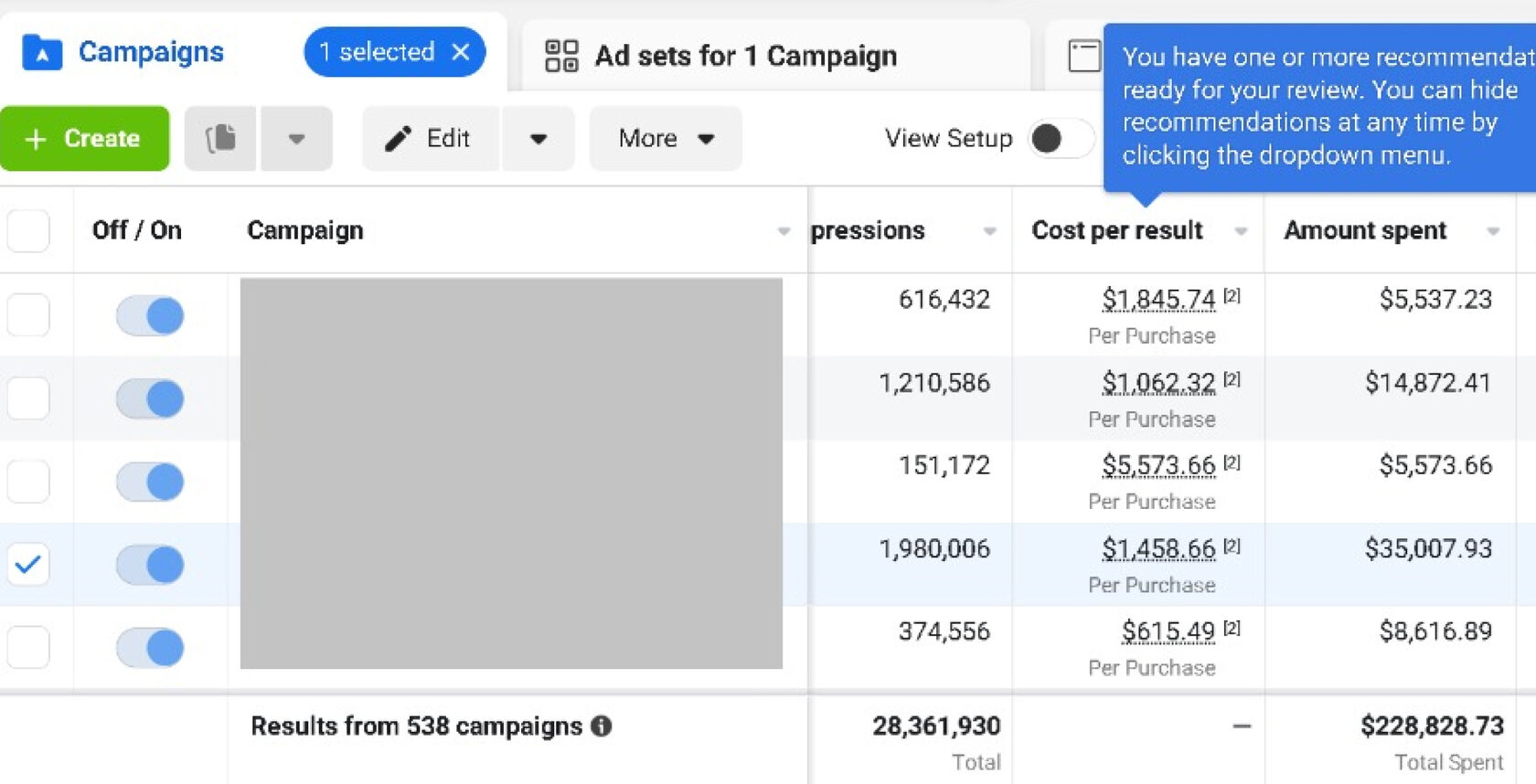Task
Service: sale of designer furnitureGEO: Toronto
Target: no more than $1800 per conversion
Lead time: 3 months.
Target audience: Men and women, 28-38 years old
What we did
First we had to decide what type of campaign we were going to test. We chose dynamic remarketing on Facebook. Because when working with other sources, we saw that the volume of traffic on the site was enough to fill audiences quickly and, consequently, to launch the campaign quickly.
Unlike conversion-oriented campaigns (which still need to "learn"), dynamic remarketing works on audiences who have already been to the site, which means the likelihood of a purchase is higher.
List of tasks completed
1. Installed a Facebook pixel.2. Set up the pixel events. Let me remind you that in order for dynamic remarketing to work properly, three events need to be set up: product card view, add to cart and successful purchase.
Since we were already working with the shop, we had the e-commerce module installed and used DataLayer to pass the parameters for dynamic remarketing to Google Ads. Using this, we simply added some tags for the pixel and events. This is what the Purchase event settings look like.
3. Loaded the data directory (feed). Since the Facebook feed can be used for the Merchant Center feed, we simply uploaded it to the Facebook account and segmented it into the product groups that participated in the test.
What was the result
We spent $288,828.73 and achieved $615.49 per purchase

Conclusion
We not only reached our goal (return on advertising on Facebook), but also exceeded it by bringing in customers with high average bill (beds and mattresses).
In a screenshot of the campaign results you can see the relationship between advertising cost and earned revenue. This was made possible by the right tool and a clearly targeted message for the target audience.
What to consider when launching:
It is important to understand that social media is not a search where we "stop" people who are already interested in a product. On social media, it is up to us to get a person's attention. Therefore, we need to be particularly careful to formulate messages about solving a potential customer's "pain".
